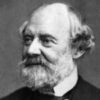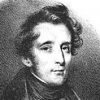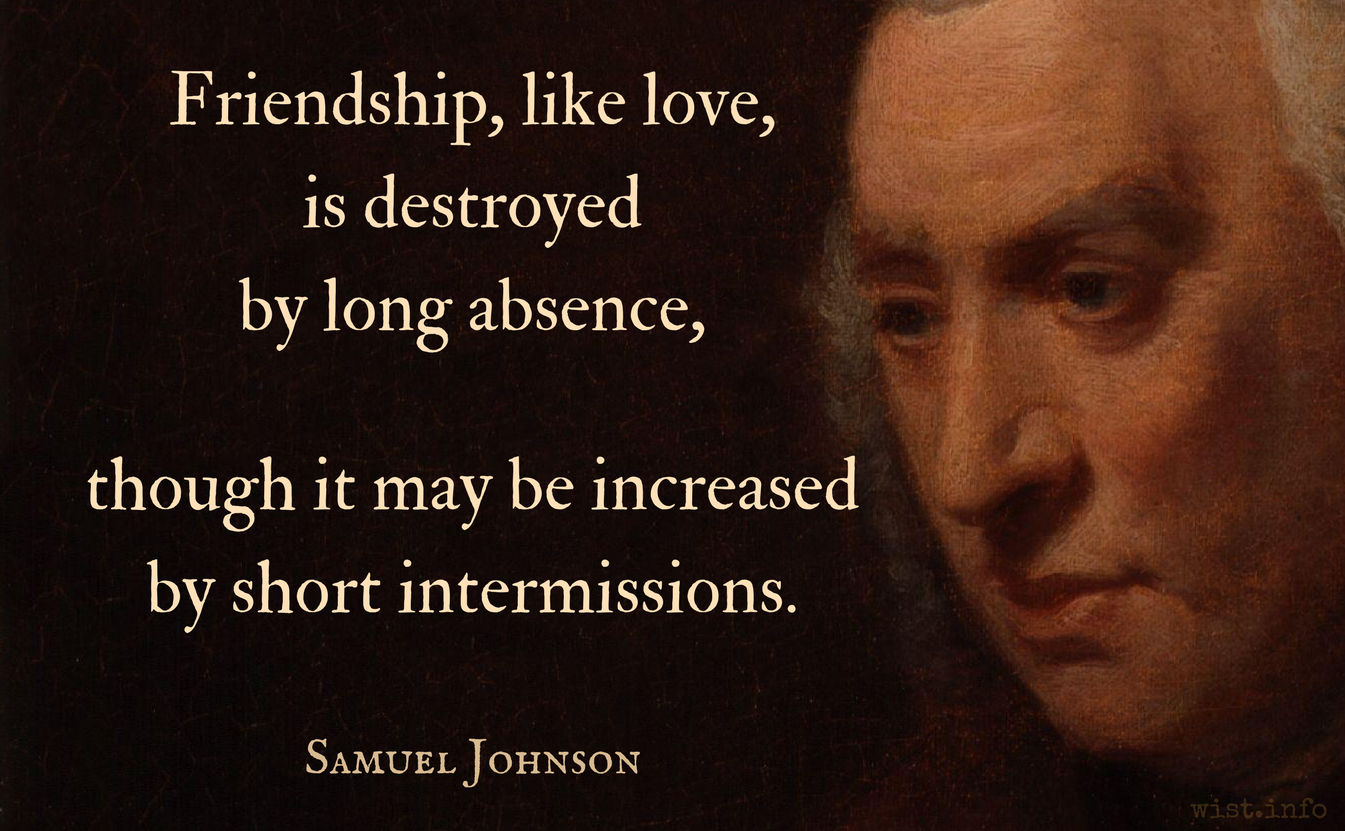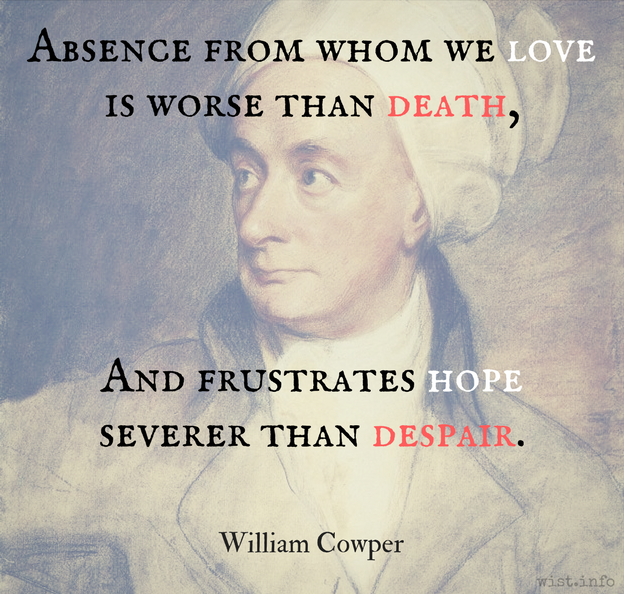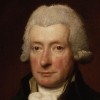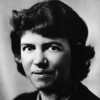He who imagines he can do without the world, deceives himself much; but he who fancies the world cannot do without him, is still more mistaken.
[Celui qui croit pouvoir trouver en soi-même de quoi se passer de tout le monde se trompe fort; mais celui qui croit qu’on ne peut se passer de lui se trompe encore davantage.]
François VI, duc de La Rochefoucauld (1613-1680) French epigrammatist, memoirist, noble
Réflexions ou sentences et maximes morales [Reflections; or Sentences and Moral Maxims], ¶201 (1665-1678) [pub. Donaldson (1783), ¶93]
(Source)
Present in the 1st (1665) edition. In manuscript, the beginning read "Celui qui croit pouvoir se passer de tout le monde ..."
(Source (French)). Other translations:He that fansies such a sufficiency in himself, that he can live without all the World, is mightily mistaken; but he that imagines himself so necessary, that other people cannot live without him, is a great deal more mistaken.
[tr. Stanhope (1694), ¶202]He who imagines he can do without the world, deceives himself much; but he who fancies the world cannot do without him, is still more mistaken.
[ed. Lepoittevin-Lacroix (1797), ¶192]He who imagines he can do without the world, deceives himself much: but he who fancies the world cannot do without him, is under a far greater deception.
[ed. Carvill (1835), ¶81]He who thinks he can find in himself the means of doing without others is much mistaken; but he who thinks that others cannot do without him is still more mistaken.
[ed. Gowens (1851), ¶210]He who thinks he has the power to content the world greatly deceives himself, but he who thinks that the world cannot be content with him deceives himself yet more.
[tr. Bund/Friswell (1871), ¶201]The man who thinks he can do without the world errs; but the man who thinks the world can do without him is in still greater error.
[tr. Heard (1917), ¶206]It is a great mistake for a man to suppose that he can dispense with the world; but it is a much greater one to suppose that the world cannot dispense with him.
[tr. Stevens (1939), ¶201]A man who believes that his inner resources are such that he can dispense with his fellow-men is committing a serious mistake: it is not, however, so serious as that of the man who believes himself indispensable to others.
[tr. FitzGibbon (1957), ¶201]The man who thinks he can do without the world is indeed mistaken: but the man who thinks the world cannot do without him is mistaken even worse.
[tr. Kronenberger (1959), ¶201]The man who thinks he can find enough in himself to be able to dispense with everybody else makes a great mistake, but the man who thinks he is indispensable to others makes an even greater.
[tr. Tancock (1959), ¶201]He who believes that he can make do without any one else in the world, is very mistaken; but he who believes that nobody in the world could make do without him, deceives himself still more greatly.
[tr. Whichello (2016) ¶201]
Quotations about:
absence
Note not all quotations have been tagged, so Search may find additional quotes on this topic.
Separations are the tonics of Love, but beware of overdoses.
Today a man is here; tomorrow he is gone. And when he is out of sight, he is soon out of mind.
[Hodie homo est, et cras non comparet. Cum autem sublatus fuerit ab oculis, etiam cito transit a mente.]
Thomas à Kempis (c. 1380-1471) German-Dutch priest, author
The Imitation of Christ [De Imitatione Christi], Book 1, ch. 23, v. 1 (1.23.1) (c. 1418-27) [tr. Sherley-Price (1952)]
(Source)
See Marcus Aurelius (AD 180).(Source (Latin)). Alternate translations:For the common proverb is true: To-day a man , to-morrow none. And when thou art taken out of sight, thou art anon out of mind, and soon shalt thou be forgotten.
[tr. Whitford/Raynal (1530/1871)]For the common proverb is true: Today a man; tomorrow none. When you are out of sight you are soon out of mind, and soon will be forgotten.
[tr. Whitford/Gardiner (1530/1955)]To day a man, tomorrow none, and out of sight, out of mind.
[tr. Page (1639)]To Day the Man is vigorous, and gay, and flourishing, and to Morrow he is cut down, withered and gone. A very little time carries him out of our Sight, and a very little more out of our Remembrance.
[tr. Stanhope (1696; 1706 ed.)]To-day man is, and to-morrow he is not seen; And when he is once removed from the fight of others, he soon passeth from their remembrance.
[tr. Payne (1803)]To-day the man is here; to-morrow he hath disappeared. And when he is out of sight, quickly also is he out of mind.
[ed. Parker (1841)]Man is here to-day, and gone to-morrow: and when once removed from sight, soon perishes from remembrance.
[tr. Dibdin (1851)]A man is here to-day, and to-morrow he is no longer seen. And when he is taken away from the sight, he is also quickly out of mind.
[ed. Bagster (1860)]To-day man is, and to-morrow he will be seen no more. And being removed out of sight, quickly also he is out of mind.
[tr. Benham (1874)]To-day we are here, to-morrow we disappear, and when we are gone, quickly also we are out of mind.
[tr. Anon. (1901)]Today we live; tomorrow we die and are quickly forgotten.
[tr. Croft/Bolton (1940)]Today man is; and tomorrow he has vanished. But when he is taken out of sight he also soon passes out of mind.
[tr. Daplyn (1952)]Here man is today; tomorrow, he is lost to view; and once a man is out of sight, it's not long before he passes out of mind.
[tr. Knox-Oakley (1959)]A man is here today and gone tomorrow, and once he is out of our sight it is not long before he is out of our minds as well.
[tr. Knott (1962)]Today a man is and tomorrow he is gone. When he has been removed from our sight he is soon out of mind as well.
[tr. Rooney (1979)]Today we are, and tomorrow we are gone. And when we are taken out of sight, we soon pass out of mind.
[tr. Creasy (1989)]
Money is like sex. It seems much more important when you don’t have any.
The idea of God that I absorbed was that it would be wonderful if He existed: We needed Him desperately but had not seen Him in many thousands of years.
Every parent is at some time the father of the unreturned prodigal, with nothing to do but keep his house open to hope.
John Ciardi (1916-1986) American poet, writer, critic
“Of Time and Chances: A Parental Reverie,” Saturday Review (1972-03-18)
(Source)
Short absence quickens love; long absence kills it.
Victor de Riqueti, Marquis de Mirabeau (1715-1786) French economist
(Attributed)
Attributed in J. De Finod (ed. and tr.), A Thousand Flashes of French Wit, Wisdom, and Wickedness (1881)
Absence is one of the most useful ingredients of family life, and to do it rightly is an art like any other.
Freya Stark (1893-1993) Franco-British explorer, travel writer [Freya Madeline Stark]
The Freya Stark Story (1953)
(Source)
Where you used to be, there is a hole in the world, which I find myself constantly walking around in the day-time, and falling into at night.
Edna St. Vincent Millay (1892-1950) American poet
Letter to Whitter “Hal” Bynner and Arthur Davidson Ficke (1920)
(Source)
The absent are like children; they are helpless to defend themselves.
The longest absence is less perilous to love than the terrible trials of incessant proximity.
The cots, the palaces and valleys here,
Are nought to me, their charm, alas! is fled;
Floods, rocks, and forests, solitudes so dear
One soul is wanting, and all else seems dead[Que me font ces vallons, ces palais, ces chaumières,
Vains objets dont pour moi le charme est envolé?
Fleuves, rochers, forêts solitudes si chères,
Un seul être vous manque et tout est dépeuplé!]Alphonse de Lamartine (1790-1869) French poet and statesman
“Solitude [L’isolement],”Poetic Meditations [Méditations Poétiques] (1820) [tr. J. Churchill]
(Source)
Alt. trans. ["Isolation"]:
"What for me do these valleys, these palaces, these cottages,
Vain objects of which for me the charm has fled?
Streams, rocks, forests, solitudes so dear,
One single being from you is missing, and everything is depopulated."
Alt. trans.:
"Sometimes, when one person is missing, the whole world seems depopulated."
Friendship, like love, is destroyed by long absence, though it may be increased by short intermissions.
Samuel Johnson (1709-1784) English writer, lexicographer, critic
The Idler, #23 (23 Sep 1758)
(Source)
Absence from whom we love is worse than death,
And frustrate hope severer than despair.William Cowper (1731-1800) English poet
“Hope, like the short-lived ray that gleams awhile”
(Source)
Absence, that common cure of love.
Miguel de Cervantes (1547-1616) Spanish novelist
Don Quixote, Part 1, Book 3, ch. 10 (1605) [tr. Motteux (1701)]
(Source)
The heart may think it knows better: the senses know that absence blots people out.
Absence is to love what wind is to fire;
It extinguishes the small, it enkindles the great.[L’absence est a l’amour ce qu’est au feu le vent;
Il eteint le petit, il allume le grand.]Roger de Rabutin, Comte de Bussy (1618-1693) French soldier, libertine, writer [a.k.a. Roger Bussy-Rabutin]
Histoire amoureuse des Gaules, “Maximes d’amour [Maxims of Love]” (1660)
See La Rochefoucauld.
Absence diminishes mediocre passions and increases great ones, as the wind blows out candles and fans flames.
[L’absence diminue les médiocres passions, et augmente les grandes, comme le vent éteint les bougies et allume le feu.]
François VI, duc de La Rochefoucauld (1613-1680) French epigrammatist, memoirist, noble
Réflexions ou sentences et maximes morales [Maxims], #276 (1665-1678)
Alt. trans.: "Absence lessens the minor passions and increases the great ones, as the wind douses a candle and kindles a fire."
(See DeBussy)













